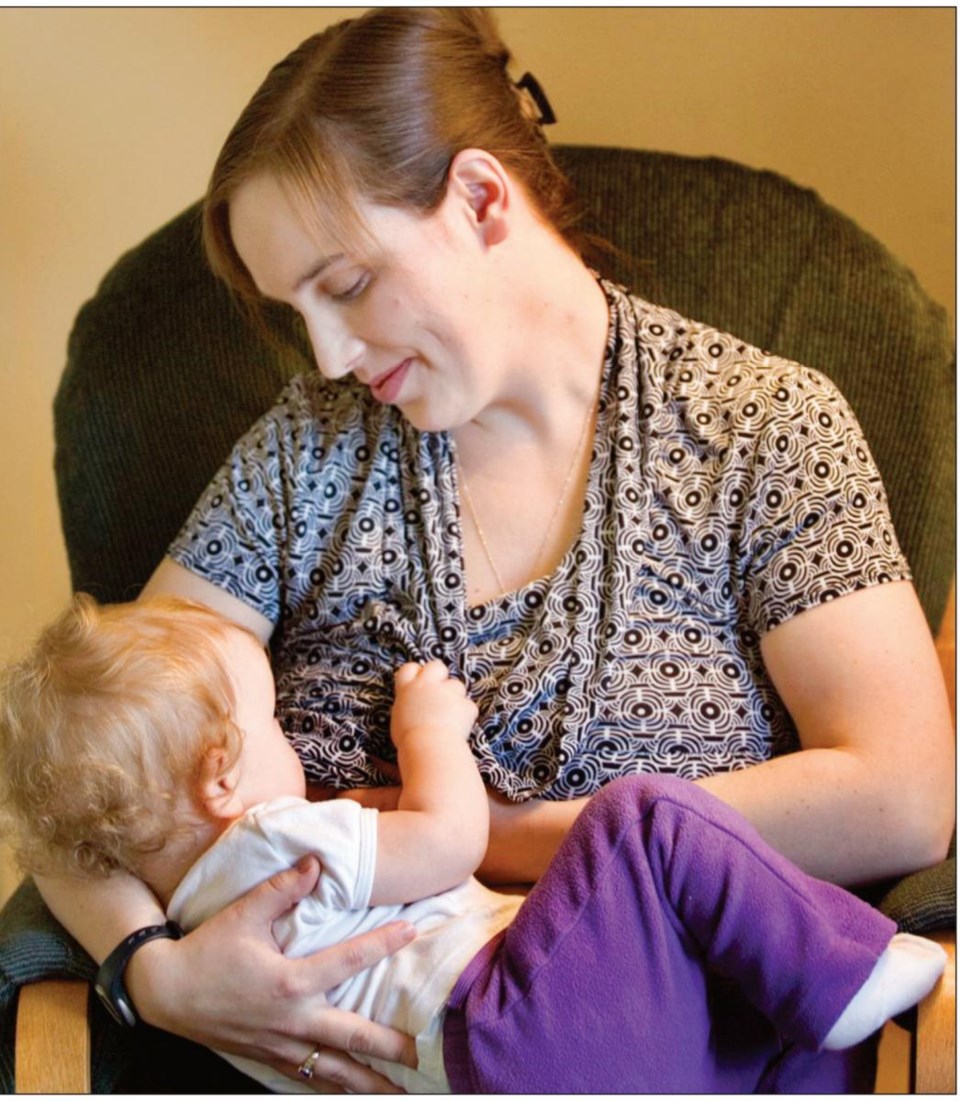M y youngest child, Edward, is a twoyear-old giant. He's tall. He's big. He's verbal.
So you can imagine some of the looks we get when he settles into my lap at the park, the restaurant, or the church pew to breastfeed, with his legs dangling halfway to the floor. I admit it probably looks odd to many.
Eddie is the fourth toddler I've breastfed and the third of my kids to nurse past two.
After raising and breastfeeding this many, a nursing toddler just seems normal. In fact, it is normal; most human societies nursed well into toddlerhood and beyond before the invention of baby formula and bottles.
Breastfeeding a toddler is less a form of nutrition as it is an aspect of the relationship I have with my child. He's still getting milk, of course, but that's not the main reason he asks to breastfeed any more.
"Why do you like the baba [breastfeeding]?" I asked Eddie the other day.
"The baba is nice. It's soft," he said. "Eddie loves his baba!"
For Eddie, breastfeeding is a direct form of affection. He will often come to me for a hug and a kiss, and follow it up with a request to nurse. Breastfeeding can also be a way to console and soothe after he bumps his head or scrapes a knee.
For me, the most interesting aspect of breastfeeding an older baby is the ability to discuss the relationship with him. When babies are little, you can't talk to them about the way breastfeeding makes them feel, or the way you feel about it. Now that Eddie is older, he can discuss it.
For example, we are finally in the process of night weaning. Eddie was getting out of his toddler bed every night to nurse for hours, and I was exhausted. I sat him down last week to talk about it.
"Eddie, mama is tired. You're keeping me awake at night wanting the baba," I explained.
"Mama needs to go sleep," he said, nodding.
"Yes! So from now on, baba is for when the sun is up. When Eddie goes nightnight, the baba goes nightnight," I said.
"OK, but I have baba when I wake up in the morning," Eddie announced.
Since our talk, he's nursed at night only once, although he's asked a few times.
It's great to be able to negotiate limits like this as he gets older; it's an essential lesson in respecting other people's boundaries and bodies. I think learning to talk about physical relationships will help throughout Eddie's life. I've seen this pay off with my older children; they are quite comfortable with saying "I don't like it when you hit me/push me/tickle me. This is my body!"
I know many people are uncomfortable with a walking, talking child nursing. It seems weird to them, or sexual, or "more for the mother than the child." It's none of these things. It is simply an aspect to parenting a toddler who was once a breastfed baby.
Kids outgrow their needs slowly, but they do outgrow them. I have been breastfeeding or pregnant pretty much non-stop for 11 years; I'd love to be done and have my body to myself again, but Eddie's not ready to be done, and I can respect that.
Eddie will, most likely, be the last child I ever breastfeed.
As our nursing relationship winds to a close, I'm satisfied with the path we've taken together. I'm also pleased my older kids will remember me nursing their brother into toddlerhood.
If they ever have children, I hope extended nursing will be just another part of raising a baby for them.



